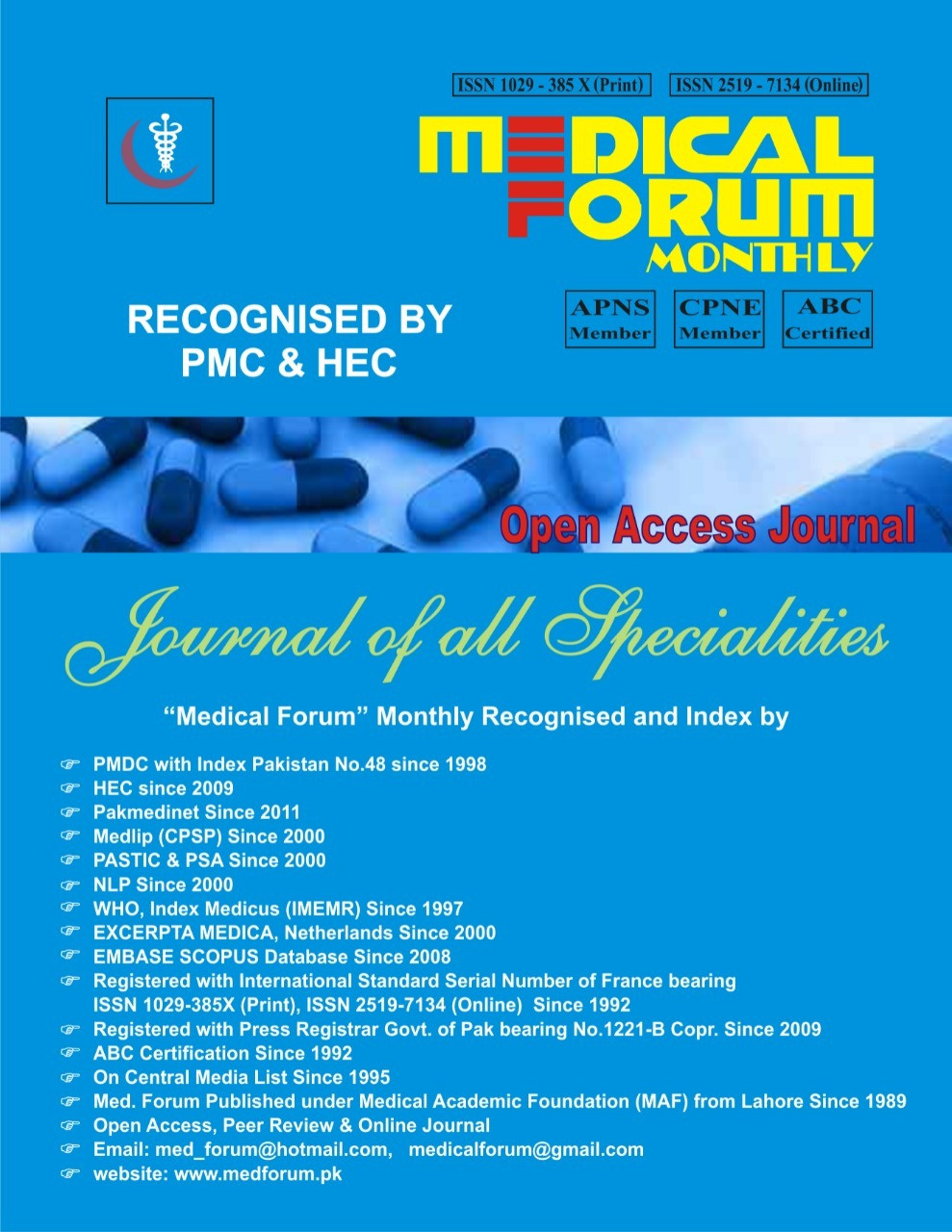
10. Personalized Multilevel Intervention for Improving Appropriate Use of Colorectal Cancer Screening
Feras Almarshad1 and Ghulam Mustafa2
ABSTRACT
Objective: To evaluate the efficacy of multi-level interventions aimed at enhancing colorectal cancer (CRC) screening uptake among individuals aged over 50 years, while also identifying the health and socio-demographic factors associated with increased participation.
Study Design: Randomized experimental study.
Place and Duration of Study: This study was conducted at the Department of Medicine, Nishtar Medical University, Multan from January 2017 to December 2019.
Methods: The data was collected from total of 20 basic health units involving men and women aged 50 to 74 years. Subjects were selected through simple random sampling and were subsequently randomly assigned to one of four groups. The first group received written information about colorectal cancer (CRC) screening through a letter, the second group received the information via a telephone call from health personnel, the third group attended a group meeting at their health center for the information, while the fourth group, serving as the control group, received no information.
Results: There were 29.1% participants, who provided written information, 27.3% had telephonic information, 21.7% had face-to-face information and 21.9% had control group. All the groups were almost equal with respect to demographic and clinical history, and differences were statistically insignificant, except education status and cancer history.
Conclusion: Simple interventions within the purview of primary health-care professionals, such as providing written and telephone information, have the potential to enhance participation in colorectal cancer (CRC) screening, thereby optimizing this preventive activity.
Key Words: Colorectal cancer, Multilevel intervention, Personalized, Prevention, Screening.
Citation of article: Almarshad F, Mustafa G. Personalized Multilevel Intervention for Improving Appropriate Use of Colorectal Cancer Screening. Med Forum 2024;35(2):45-49. doi:10.60110/ medforum.350210.
